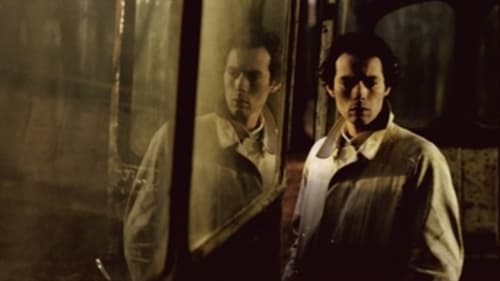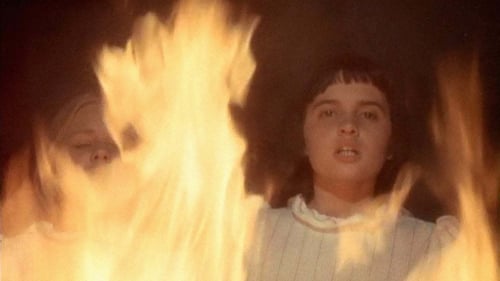
Editor
Samar, a child of the war, finds relief from the chaos around her through Egyptian movies she watches on television. Karim, an artist in retreat from life, remains in his apartment in war-torn West Beirut, confident that he is safe in his familiar neighborhood. An unlikely bond is formed between the two as they face the devastating civil war.

Editor
In July 1982, the Israeli army besieged Beirut. Four days earlier, Jocelyne Saab sees her house burn and 150 years of family existence go up in smoke. She then takes refuge in questioning: when did this all begin? How did the Beirut people live the siege? Each place will then become a story and each name a memory.

Editor
Balogun's most political film is a confrontation with the African wars of liberation. Based on Carcase for Hounds, Meja Mwangi's novel about the Mau-Mau uprising, it is set in an unnamed country and thus offers the vision of a pan-African struggle for freedom and against colonial oppression. The central figures in the straightforwardly and powerfully told story are the guerrilla leader Haraka and his adversary, the English colonial official Kingsley. In the end, the film becomes a homage to the freedom fighters from all over Africa: the final images show Patrice Lumumba, Steve Biko, Nelson Mandela and Amílcar Cabral, among others.

Editor
A Deusa Negra is a love story that spans two centuries. In 18th century Yorubaland, Prince Oluyole is taken prisoner in the course of internecine warfare fanned by overseas slave traders. He is sold into slavery in Brazil. In present day Nigeria, at his father's deathbed, the young Babatunde promises to go to Brazil and search for traces of their once-enslaved ancestors. Beginning with a Candomblé ritual, his journey takes him ever deeper into this culture and, in a dream-like sequence, affords him a deeper understanding of his ancestors' suffering and powers of resistance. Balogun effortlessly links present with past, real with magical worlds and discourse with trance. The hypnotic atmosphere is also heightened by the music of the Nigerian drummer Remi Kabaka, which plays with repetitive patterns and distortions.

Editor
Pierre, a young man of Brussels, has lost his job. Unbeknowst to Barbara, the woman he lives with, he has become a pickpocket to survive. He works in partnership with a young Tunisian immigrant he meets every Sunday in an abandoned bus where they share the loot of the week. One day, Pierre finds his accomplice dead in their hiding place. Pierre suddenly realizes that he does not know much about his dead friend. Taking possession of his identity papers, Pierre decides to go to Tunisia to find out who his friend actually was.

Editor
The hero of this bleak science-fiction story is a married man who, along with his wife, survives the mysterious destruction of the world. After his wife dies, he makes plans to seek out whatever remnants of civilization exist. However, the arrival of a group of children and their older mentor changes his plans.

Editor
1976 marks the beginning of Beirut’s calvary. With a child’s eyes the filmmaker follows for six months the daily destruction of the city’s walls. Every morning, between 6 and 10am she roams around Beirut while the militia from both sides rest from their night of fighting.

Sound Editor
15歳の少女、黒髪のアンヌとブロンドのロールが主人公。寄宿学校に通う二人はバカンスを利用し、盗みや放火、また牧童を誘惑したり庭番の小鳥を殺害したり、悪魔崇拝儀式を取り行うなどの残酷な行為を繰り返していた。やがて二人の行為はエスカレートし、死の危険を孕んだ破滅的な終局へ向かっていく。<反宗教的で淫靡な内容からフランス本国を初めとする各国で上映禁止となり、アメリカと日本とのみで上映された。物語のモチーフとなったのはアン・ペリーによる実際の殺人事件とされており、この事件はピーター・ジャクソン監督も『乙女の祈り』として映画化した。

Editor
15歳の少女、黒髪のアンヌとブロンドのロールが主人公。寄宿学校に通う二人はバカンスを利用し、盗みや放火、また牧童を誘惑したり庭番の小鳥を殺害したり、悪魔崇拝儀式を取り行うなどの残酷な行為を繰り返していた。やがて二人の行為はエスカレートし、死の危険を孕んだ破滅的な終局へ向かっていく。<反宗教的で淫靡な内容からフランス本国を初めとする各国で上映禁止となり、アメリカと日本とのみで上映された。物語のモチーフとなったのはアン・ペリーによる実際の殺人事件とされており、この事件はピーター・ジャクソン監督も『乙女の祈り』として映画化した。







